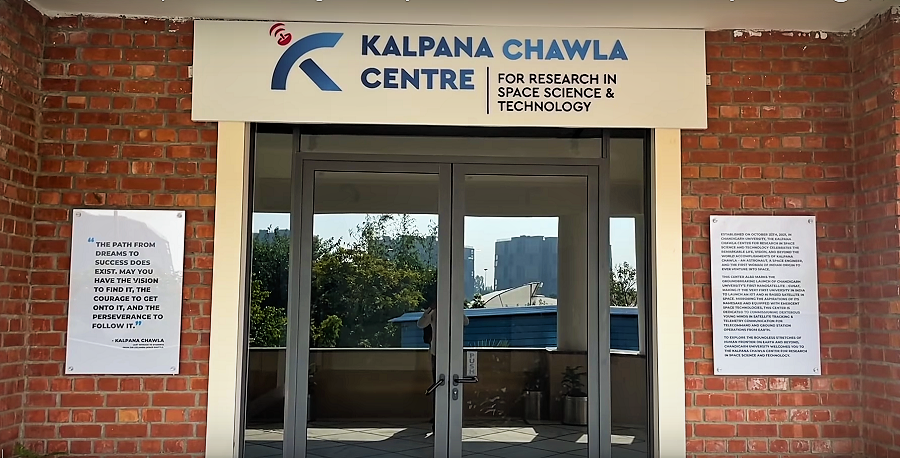
Yesterday, Defence Minister, Mr Rajnath Singh inaugurated the Kalpana Chawla Centre for Research in Space Science & Technology (KCCRSST) at Chandigarh University, Gharuan, aiming to train students in space science and satellite development.
The space centre is built on the name of Kalpana Chawla -- the first woman of Indian origin to go to space. She first flew on Space Shuttle Columbia in 1997 as a mission specialist and primary robotic arm operator. Karnal, Haryana born Kalpana was one of the 7 crew members who died in the Space Shuttle Columbia disaster when the spacecraft disintegrated during its re-entry into the Earth's atmosphere.
 |
The newly launched state-of-the-art space centre will help in developing satellite research facilities and launching satellites in countries which have not yet developed satellite technology. It will not only help in the design, development and research of satellites but will also play a vital role in preparing space scientists and emerging professionals of the future.
S. Satnam Singh Sandhu, Chancellor, Chandigarh University, said, "The university has taken a giant leap by launching its own ground control station named Kalpana Chawla Centre for Research in Space Science and Technology, dedicated to the first woman astronaut of Indian origin to go into space. It fills me with pride to inform that Honourable Defence Minister, Shri Rajnath Singh Ji will inaugurate this space centre on Monday, the 3rd of January, 2022."
He said that this space centre will further strengthen the relationship of the University with various academic and research institutions through research collaboration and technology transfer.
In addition, the centre would act as as the earth station for the Chandigarh University's Student Satellite (CUSAT), an in-house developed nano-satellite being designed by the students of Chandigarh University.
To recall, last year in May the university has launched Student Satellite Designing and Training program 'CUSAT' and became North India's first University to launch the advanced training program for the students in the field of Aerospace Engineering. The CUSAT will be among the 75 student-built satellites being launched into space on the eve of the 75th Independence Day, which is in this year. Chandigarh University has joined the list of 13 institutes like IIT Kanpur, IIT Bombay who have designed and developed its own satellite.
With CUSAT, Punjab will become the first border state in India to have its own satellite in space. The launch of the university's nanosatellite-CUSAT will prove to be of great importance, as it will collect data related to border intrusion detection, agriculture, weather forecasting, natural disaster forecasting, which will be helpful in the research and study of various problems in these areas.
Like this content? Sign up for our daily newsletter to get latest updates. or Join Our WhatsApp Channel








 IndianWeb2.com is an independent digital media platform for business, entrepreneurship, science, technology, startups, gadgets and climate change news & reviews.
IndianWeb2.com is an independent digital media platform for business, entrepreneurship, science, technology, startups, gadgets and climate change news & reviews.
No comments
Post a Comment